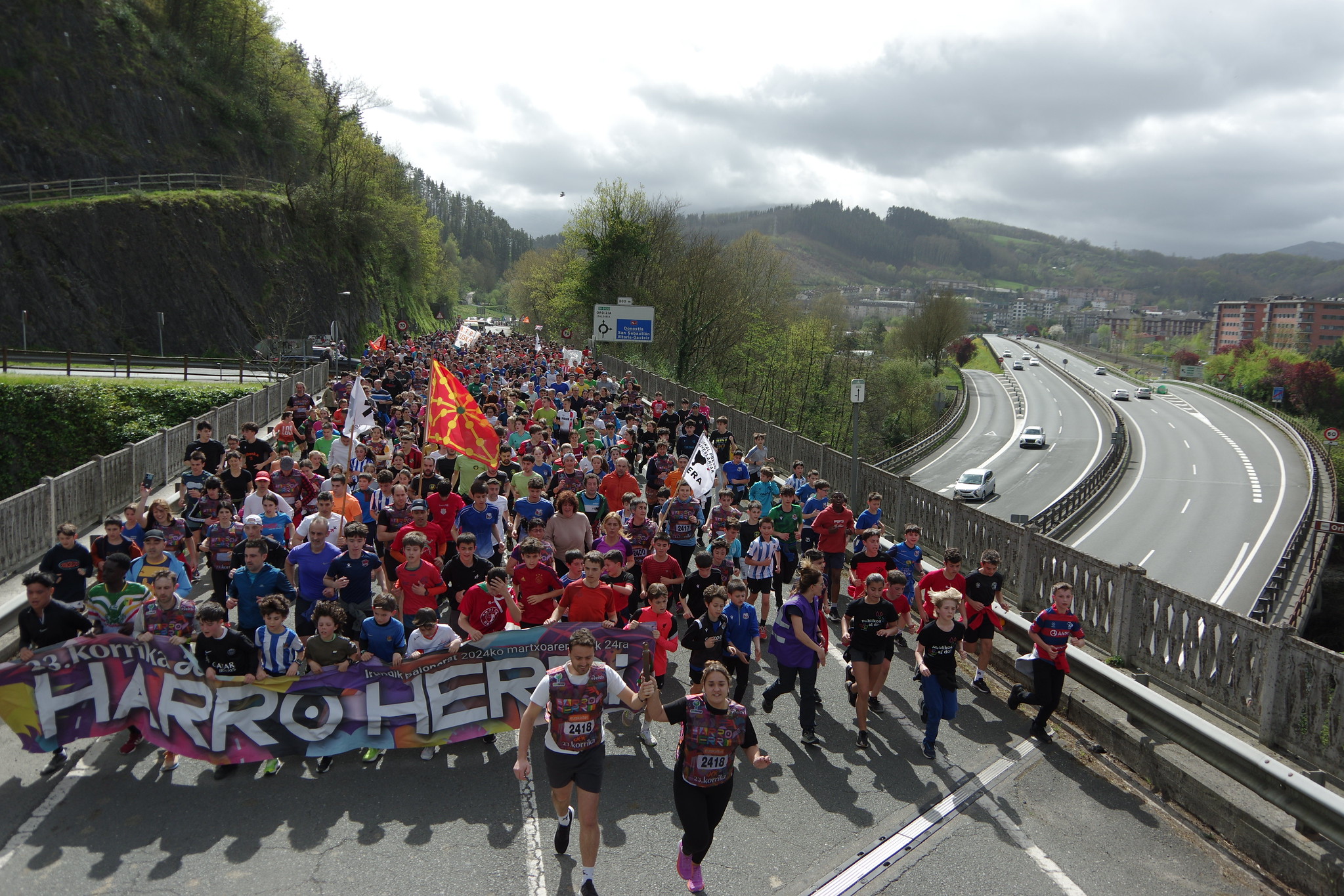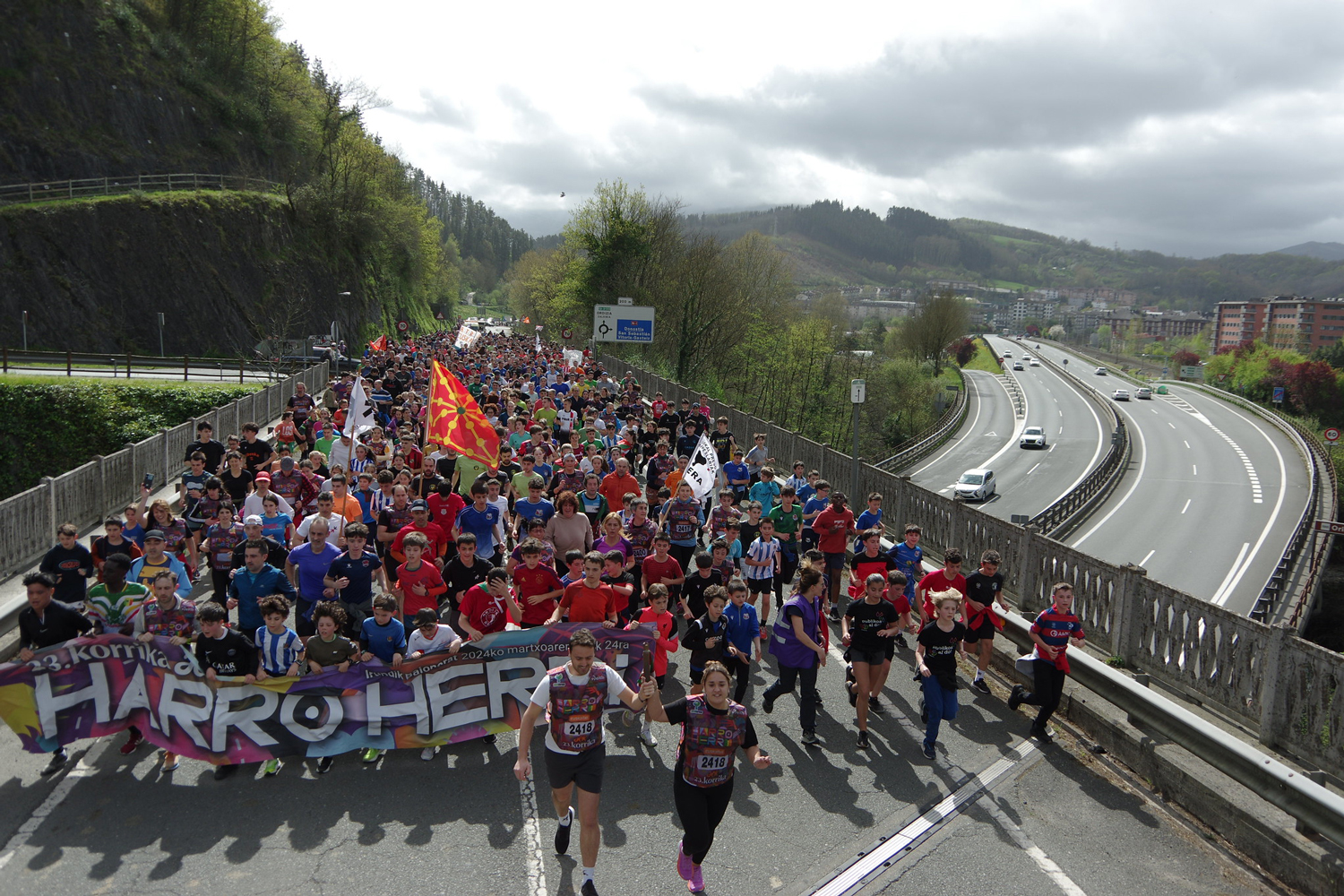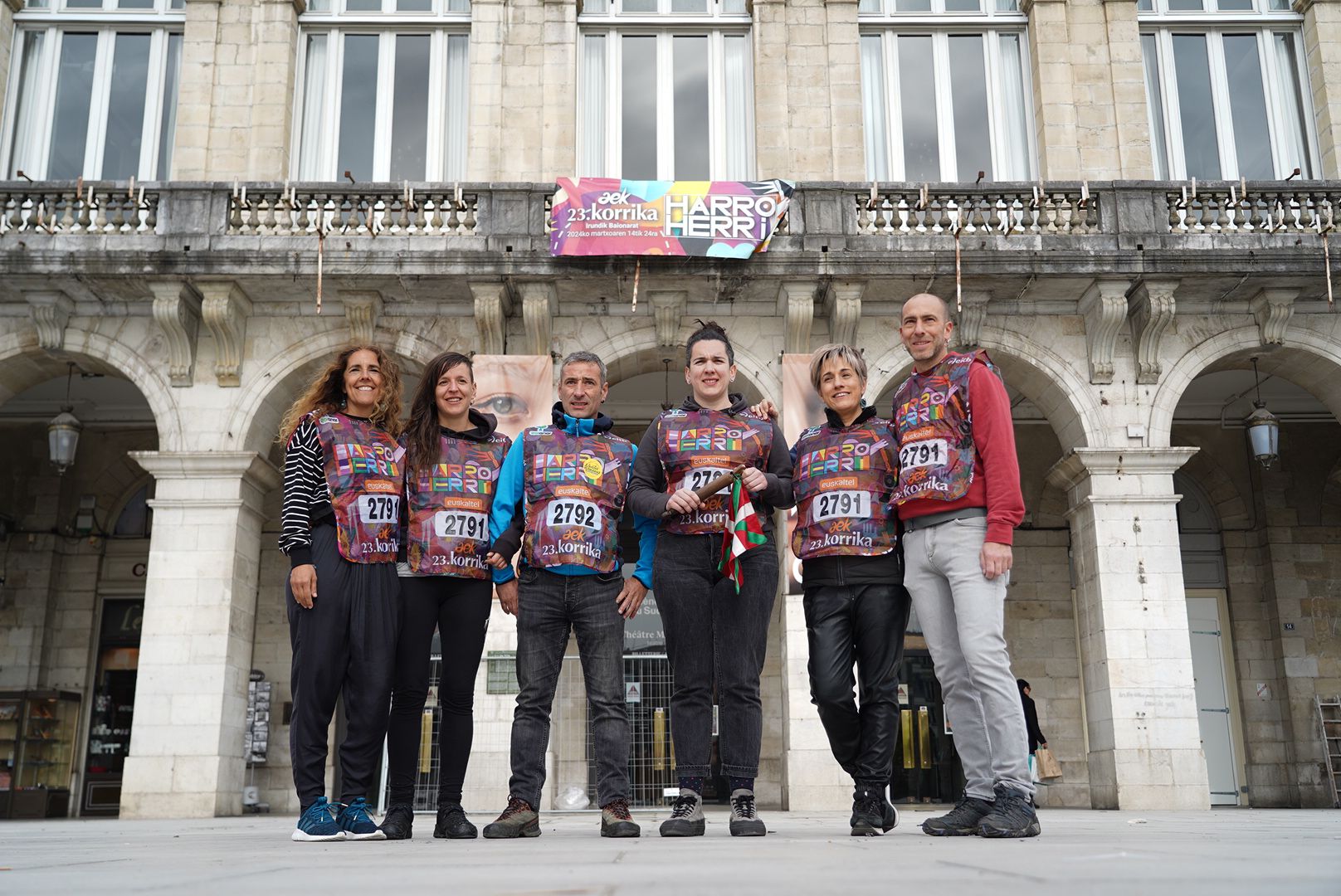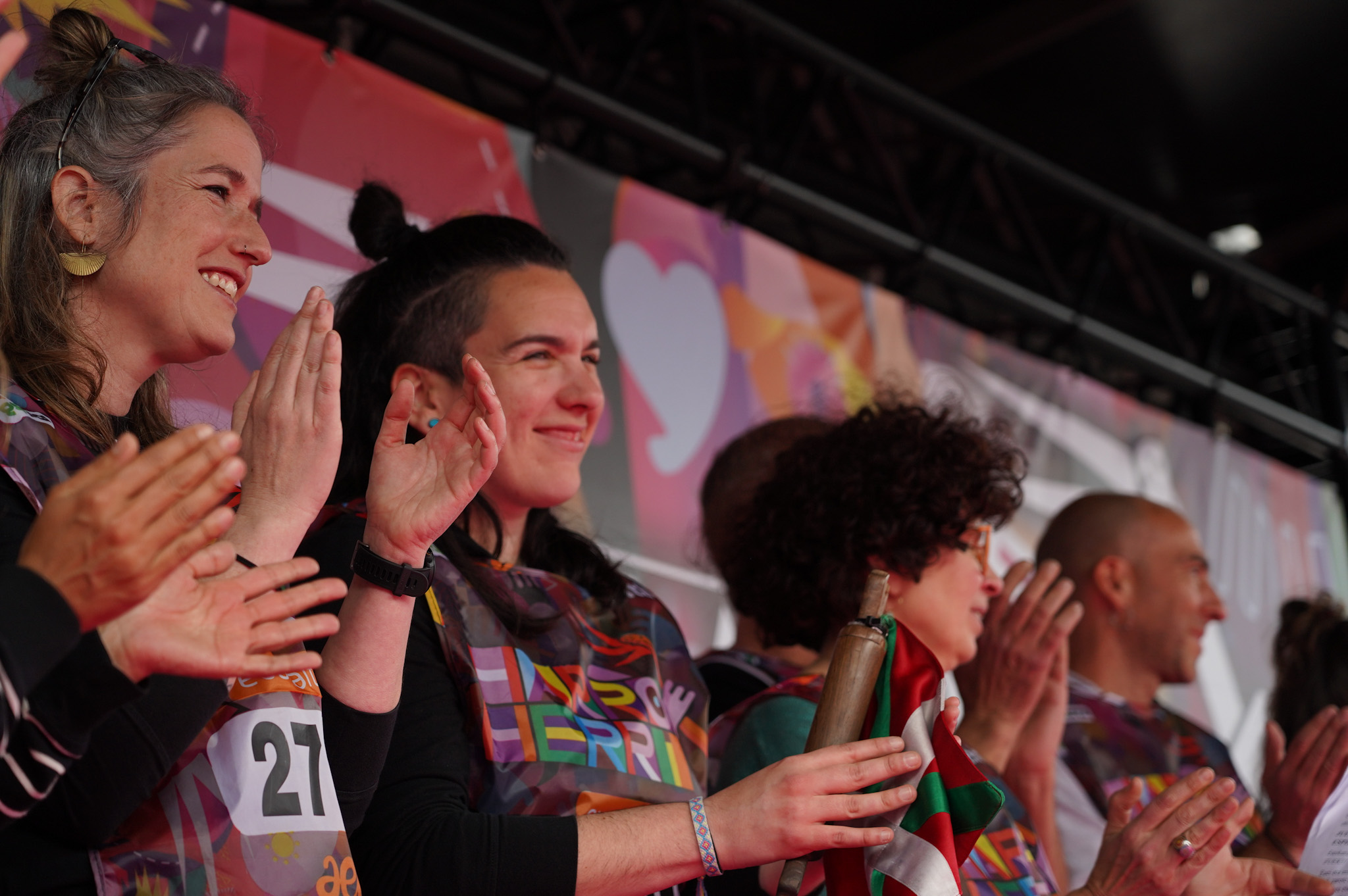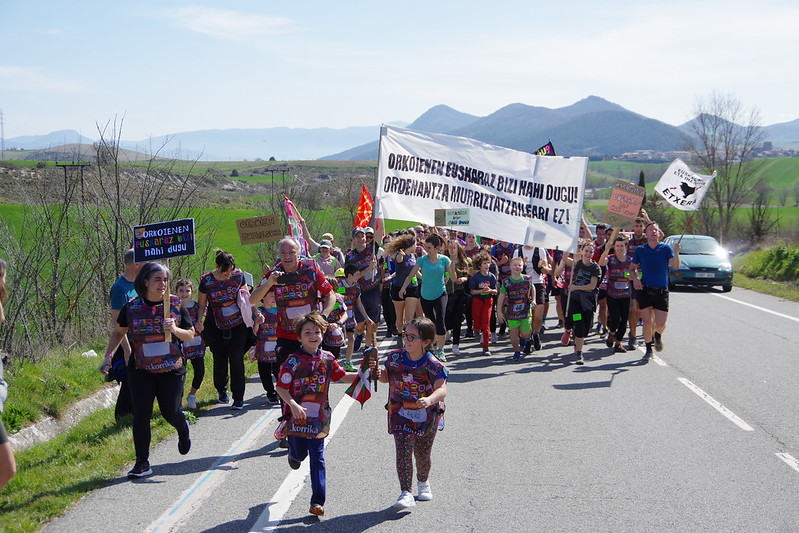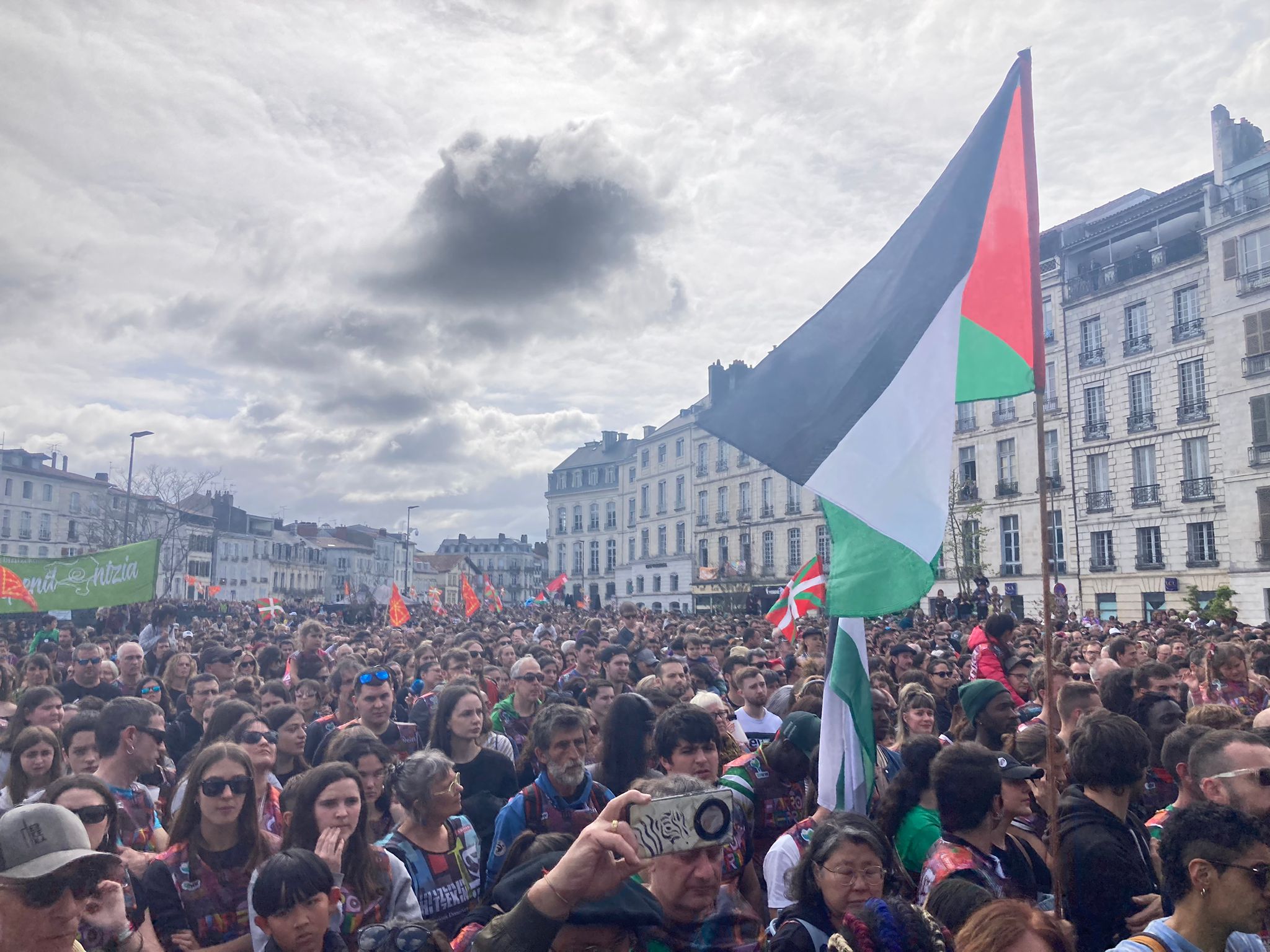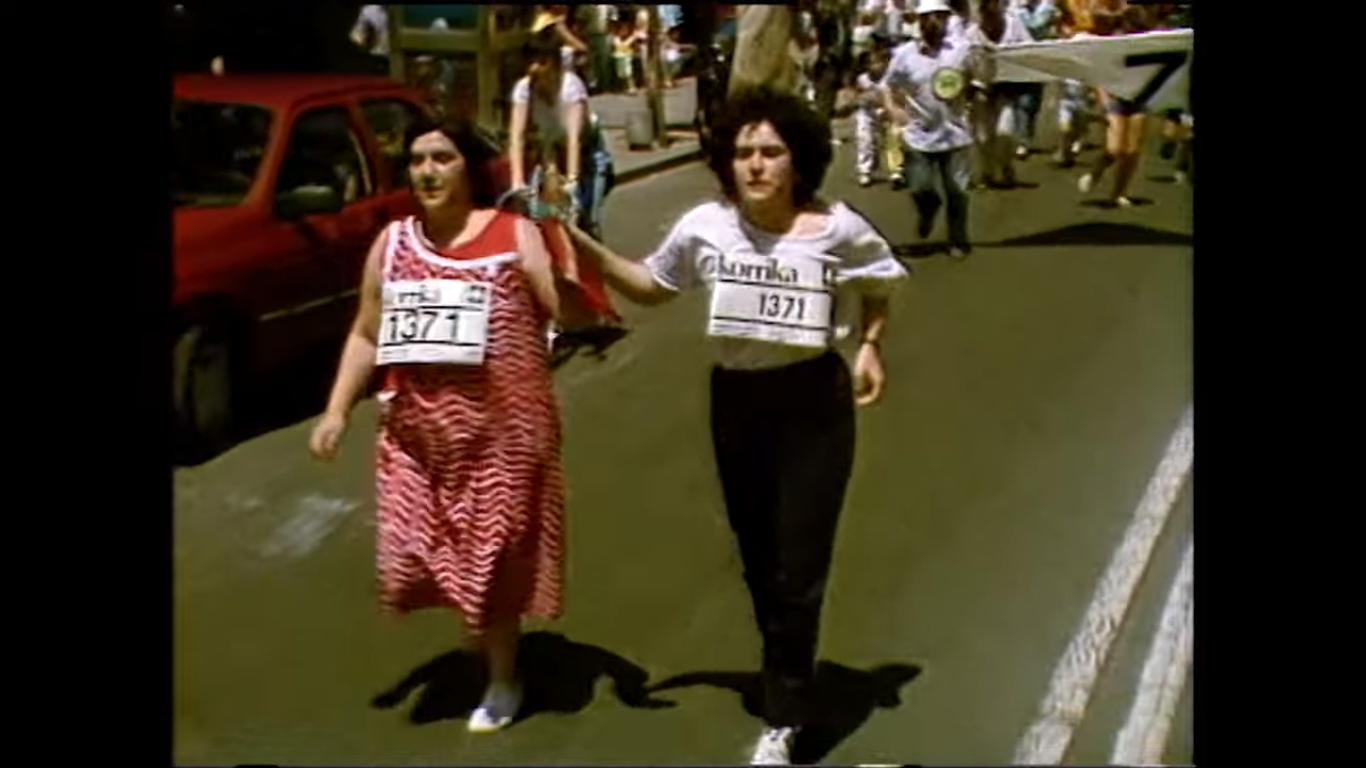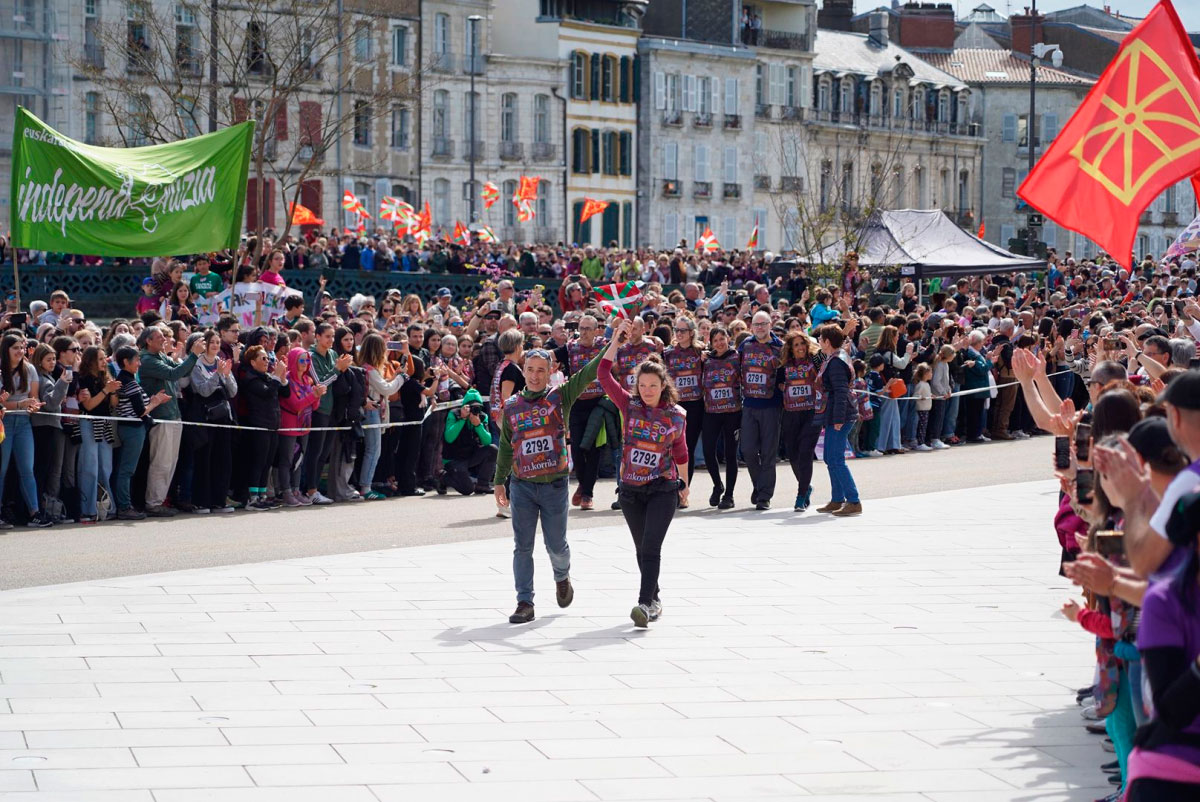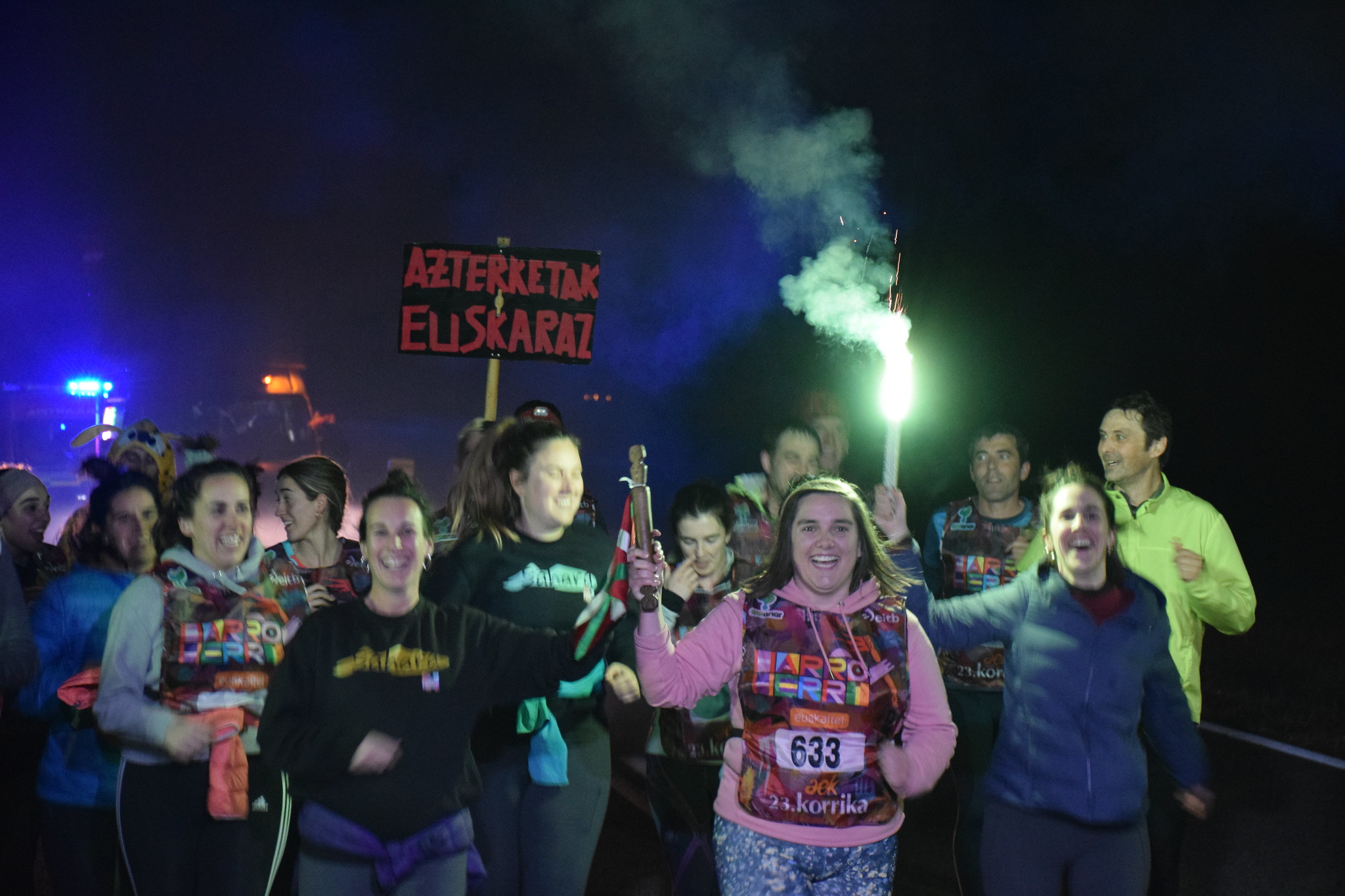"One of the main obstacles facing the Basque Country is that by studying you have to pay an amount of money"
- It's been Monday night 23. Korrika through the streets of Gasteiz, and the Basque people have filled the city of demands. Natasha Rueda was also present, with which we spoke during the preparation. Colombia has been living in Vitoria for 25 years; we have talked about the passing of Korrika and its Euskaldunisation, among other things.
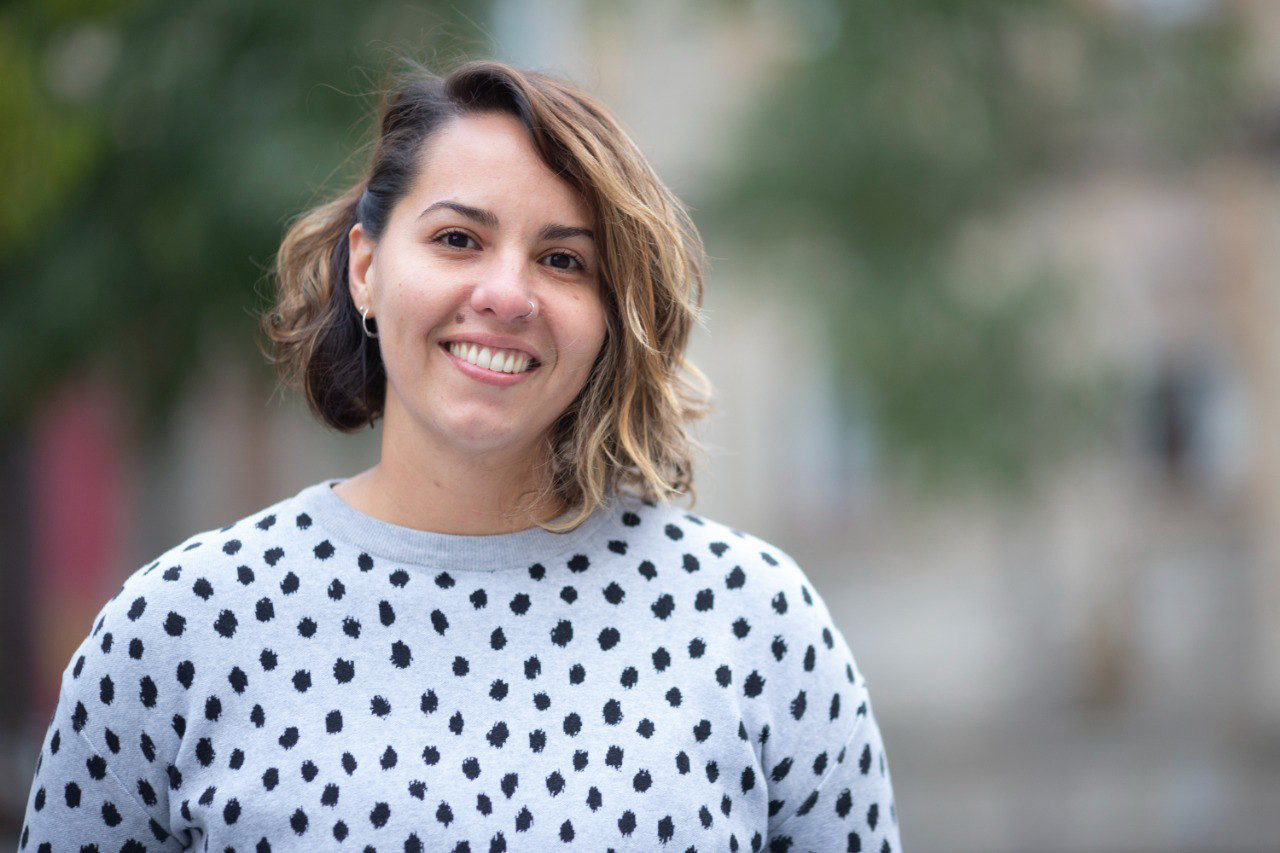
We stayed with Natasha Rueda Cárdenas (Cali, Colombia, 1984) in the Goian association of Vitoria-Gasteiz. They're preparing the race. We have had a profound dialogue: how it came to Euskal Herria, its poor experience with Euskera in school, how it changed the idea, the price of learning Euskera, the world of Euskera and the relationships between people who come from other parts of the world, etc.
When did he come to Basque Country?
About 25 years ago, I turned 15 here. First came an aunt to work, then the mother and finally came three brothers. Supporters of two other parents and the same father are in Colombia.
Did the Basque or the Basque Country know when they came?
No, no, nothing.
And what was the arrival like?
I came in summer. I spent all summer alone with my mother and my partner, and then I started studying at Jesus Worker. Now they make schooling different, when a child comes, they put him in the classroom of their elders, but when I got there I got into the first course of the ESO, when I was 12 years old, to make an evaluation. The evaluation lasted a month and a half. While I made friends in class, even if they were younger, and then they told me it was the fourth grade. By then I had friends, and for me it was like starting again from scratch. When you reach the city, the culture, the schedule… Everything changes and when I got a small balance I didn't want to change again, I said, "Step, I don't care, I prefer to stay in the foreground, even if it was 12 years." It was a group of my peers.
Was the Basque then?
Yes, I didn't know that here was another language and how important it was. When we had the first school I had a bad experience, I was exempted from studying Basque, but I took the book and said, "Well, it's a language, like English, I can try to learn." In that first class I tried to do some cash exercises and when I had a doubt I asked the professor. He told me that I had 30 other students who had to study Basque or yes, that I was exempt and didn't help me, and that if I wanted to, I could also leave the classroom or do what I wanted.
"And all of a sudden, one day I picked up a boat, I understood a conversation between Basques, but without doing super-hard, I didn't realize, and when I realized I was understanding, I buh! Please speak Basque."
What did you do?
I stayed in the room and performed other homework or exercises. That is where my relationship with the Basque Country ended. I got that strong response back and for me the Basque Country ended. The young people above tell me that you can now be exempt from the Basque Country for up to two years. I spent all ESO and high school without studying Basque.
And then college?
Yes, I studied Social Work in Vitoria, in Spanish.
Remember the Basque for the first time in a loving way?
My college environment and my company was totally Spanish, but I remember that all of our friends learned Ken7's Ilargia song. At the neighborhood festivities we heard more songs in Basque, but for me the Basque did not go with me. And then when I started in Goihan, everything changed. I started as a monitor, and they explained to me that in Goian the Basque language was important, the educational project here, the history of the Basque Country... When you come here you realize that there is a second official language, but they do not explain anything, why there is, the importance of learning... And then it was gradually changing the Basque language and its relationship.
And he went to the Basque Country.
Yes, I enrolled in AEK. The friends of my environment told me that AEK was the best to have a first contact, for the way of teaching, for the transmission… And I really got it, my first teacher was Manu [Bendala] and it was very fun to go to learn Euskera, always preparing the activities I had. Imagine we were going at 08:00, bad time, but I always had something prepared; I remember that once he walked through the Euskaltegi door to learn the colors, he made a circuit, a kind of maze, with colors. It is important that, beyond studying, we love the Basque language, or that someone explain to us where the "intimate friend" comes from.
Then, in addition, Goian meetings are often held in Basque, sometimes translated at the moment or later with people who do not know Basque. There you learn to see the Basque in another way, to respect that people speak in Basque in front of you, even if they do not understand it, because then those people were responsible for explaining what they have spoken to you, that is, they put me in the conversation. That also made it easier for me to learn Basque, I was used to listening to Basque, to distinguishing some words… And suddenly, one day I took a boat, I understood a conversation between Basques, but without doing a super effort, I didn’t realize, and when I realized that I was understanding, I buh! Please speak Basque.
"My friends told me that AEK was the best to have a first contact, for the way of teaching, for the transmission… And I really got it, my first teacher was Manu [Bendala] and it was very fun to go to learn Euskera, always preparing the activities I had."
Did you pay to study Basque?
I paid yes, I had a job and I realized it was important to study for my job. But that amount of money for learning a language that is also official here... I think that is one of the main obstacles that the Basque country has, that you have to pay for studying, I'm sure if you didn't have to pay, there would be a lot more people and it would be easier. On the other hand, I do not agree with paying, but I understand that if political measures are not put in place for this, then we will have to pay. However, it is a great effort, it is a lot of money, and if you are a migrated person, in the first years there is not enough money, also has to dedicate to a thousand jobs, it is very difficult. The young people of Goiana, if they do not study in school, then they do not have a facility to go to the Euskaltegi and when it is created, something has to be paid. This keeps more people from learning. In Catalonia they have more facilities and here also to learn Spanish.
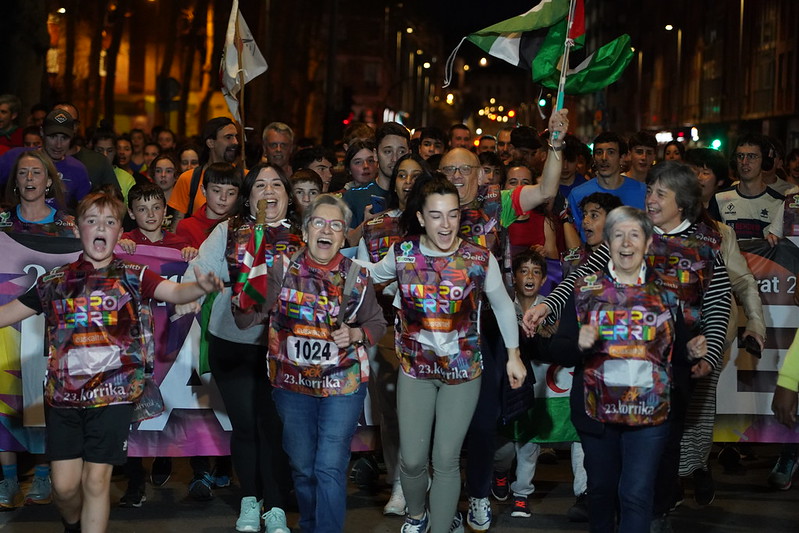
How do you work the Basque in Goiain?
This year we have a children's monitor that doesn't know Euskera, because one of our priorities is that children have referents that they don't normally have, like racialized people coming from other places in the world. There is a generation with 20-30 years that has not been euskaldunized, studying in model A. How do we work with them? Well, first of all, we explain Goian's educational criteria, including Euskera, and you have to understand that that's not an obstacle for them. It's about changing the mindset and being proactive to start learning basic things: hello, how about, thank you, one, two, three, four…
We understand that some of them are angry, give them the strange Basque, have not taught them, we have to explain things to them, we have to help them learn basic things: the words yes, but also to use the neural translator to understand the messages, give them facilities… Not to understand the messages that sometimes got angry, for example. Well, look, there are instruments that we can use to make everyone communicate in their language and respect it. At meetings we also use whispers to make translations. We have been learning year after year, at first it was harder for us to speak one language first and then another… now it is normal for us to have a whispering person in a meeting.
"We understand that there are young people who are angry, who have not been taught by Euskera, that we have to explain things to them, that we have to help them learn basic things: words yes, but also the neural translator to understand messages"
And there's a group that's learning Euskera, right?
Yes, there is a Life Foundation scholarship and we go to the Basque Country of IKA about twenty people, we started last year and we continue this year. The mindset has changed a lot since I started working here. Sometimes I hear that "outside people don't want to learn Euskera, they don't want to know anything about Euskera," is a very big, absolutely absolute mistake. People moving here in the area of the Casco Viejo, at Ramón Bajo School and in the surrounding area know that the Basque country is important and want to learn. In addition, their children learn Basque and that motivates them. We've formed this group with the adults around Goihan, and we're about twenty. If this scholarship had not existed, most would not have been able to study in the Basque Country.
Will you participate in Korrika?
Yes, in Goian we have warmed up, last week we did several workshops: we have painted the windows of Campillo, we have witnessed with the children, and on Monday, Korrika comes, it is customary to do the kilometer of diversity with “Josten Networks”. We stayed in Landxo at 18:00 and we will do a walk to ARTIUM, then we will go through Bizane, because in Goián we also work with the elderly and this year a lady will take the witness. He is very participative and very supportive of the Basque Country, he is very proud to bear the witness, and there is also another linguistic gap: in the elderly there are also many people who do not know Basque. Then the idea is that, as it is also Ramadan and Korrika comes quite late to Vitoria, so take advantage of it to make a kilometer and eat something in the Burullería square together and see how it happens running in Kutxi. So we can all participate in one way or another.
It is a very special race, two years ago, when it ended in Vitoria, we were asked to take the banner from Goiana and it was a super nice one. Seeing everybody through that plane, on both sides, filling the plaza, I got into the White Virgin, where I understood the sentiment that many of my colleagues were telling me. From outside I didn't understand it, I understood it when I participated, from within. Flipé. But all things are like this, right? You know, that's fine, but then you have to be able to live that. If you don't live...
"I understand that activities in Euskera should be in Euskera, but sometimes there are not many facilities for people who want to get closer to this world of Euskera to get to activities"
Would you like to say something else?
Finally, I would say that we have not yet achieved a very Euskaldun world and a connection between people who want to start moving or knowing things. I understand that activities in Euskera have to be in Euskera, but sometimes for people who want to get closer to that world of Euskera there are not many facilities for them to reach the activities, nor for them to take the children. There is a way, among them to create something for those people who want to get closer: to know what is done, to facilitate participation. That is to say, that activities do not remain in a highly specialized audience, that they spread to everybody, that bridges are built. In Goiain we work like this, but we all have to take those customs.
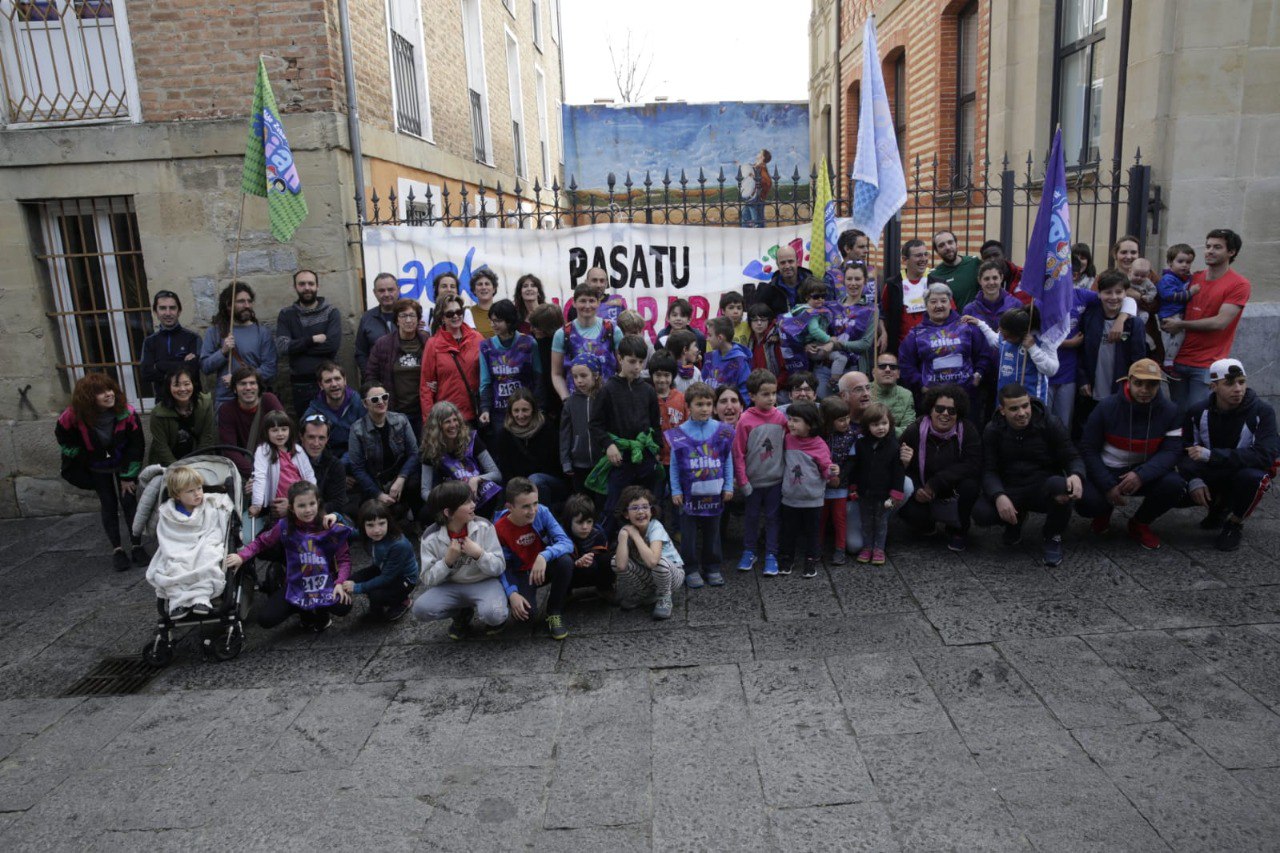
We Basques move our feet behind the witness of Korrika to proclaim that we want to survive as a Basque people in favor of our language, with the aim of the Basque Country we desire.
The tipi-tapa is the first step taken by a migrant person who leaves his homeland in Africa,... [+]
Not more than a year living in Vitoria when I first saw Korrika. It was daylight, I was carrying my daughter in a backpack, and a bunch of speakers around me, and among those friends, Rosa, who is still beside me. About her daughter, what to say, is almost 14 years old, and in... [+]
For eleven days, from 14 to 24 March, the corners of Euskal Herria will run 23 March. Running. Photographs sent by AEK are being collected in this gallery.








.jpg)


